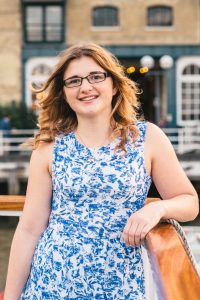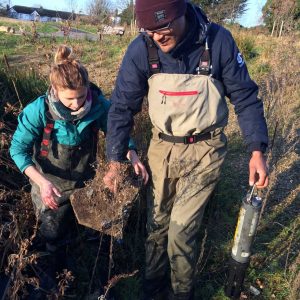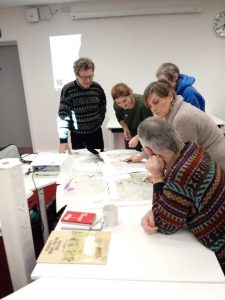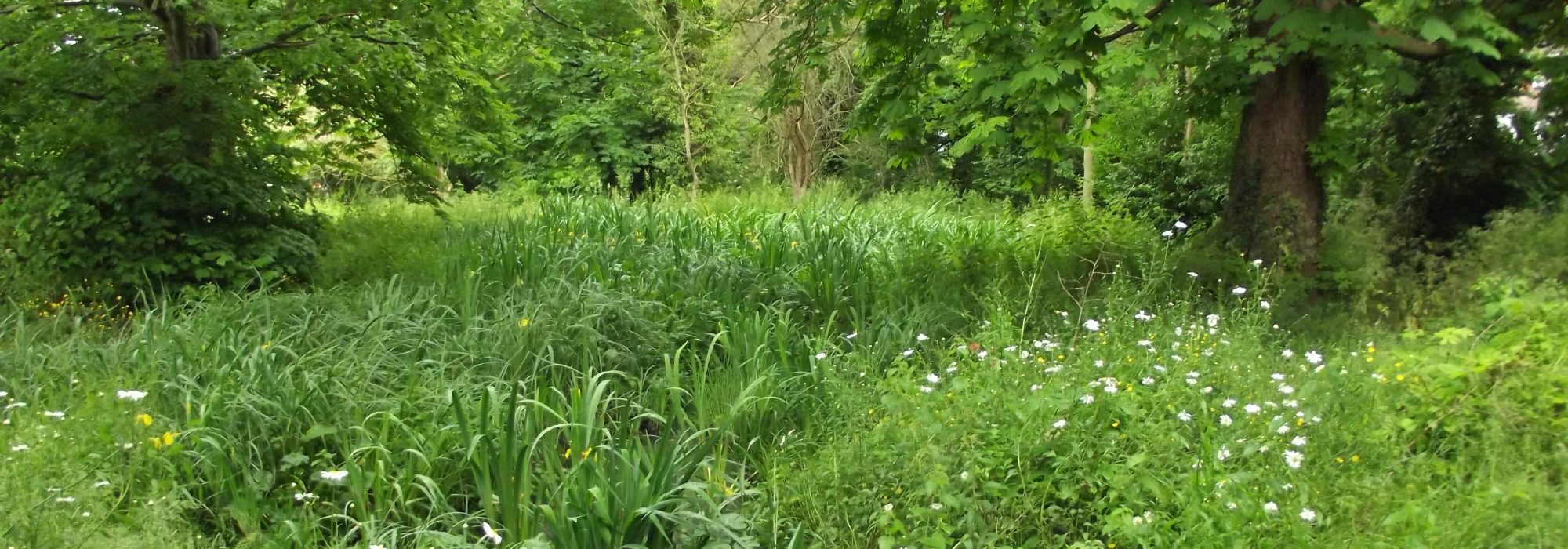International Day of Women and Girls in Science – a day in the life
By Rosie Nelson, Community Modelling Officer at Thames21

I’m an environmental scientist with the rather elusive job title of ‘Community Modelling Officer’, where no one is really sure what I do.
I model, but not the type of modelling you might be thinking of.
I use computer software that ‘models’ or tests how creating a wetland in one area could improve water quality in rivers across an entire catchment. By working with community groups in North London, we hope to find and create new green spaces in the capital which will boost biodiversity and improve the health of rivers through restoration efforts.
HELPING RESTORE RIVERS
River restoration can be anything from planting trees along a river bank, which improves biodiversity, to changing the course of a river channel to benefit wildlife by altering the flow. At school, I had a great GCSE Geography teacher who kick-started my passion for rivers and that passion flourished into trialling river restoration techniques. Growing up, I was lucky enough to live near a river where I nourished my interest in flows by playing pooh sticks and making dams.
“I feel incredibly privileged to be able to combine what I love doing for fun with my day job.”

WOMEN IN SCIENCE
Historically women were discouraged from pursuing careers in science, but thankfully this has and is continuing to change. That isn’t to say I haven’t faced barriers, but the ones I’ve faced stem from a lack of experience rather than being female.
I have never and may never think of myself as a woman in science, but writing this blog has made me consider the importance of diversity within a sector and how integral it is for women to be part of the decisions that affect everyone.
I feel incredibly privileged to have had such a smooth transition into this field. I hope through the continuous hard work from women in science, girls in the future will, like me, consider a career in science without thinking twice. Women are working and succeeding in science every day. One current example which inspires me is the all-female eXXpedition crew who recently circumnavigated the UK by boat monitoring for plastic in the ocean.
WHY I LOVE SCIENCE
Science gives us opportunities to make a difference. It can change someone’s perspective, cure diseases, and revive species on the brink of extinction. With the ever-increasing pressures on the environment, understanding our planet through science is more important than ever.
WHY I LOVE MY JOB
What I love about being an environmental scientist is that the role is so varied. No two days are the same:
On Monday I helped volunteers build a floating reedbed on the River Lea.

Tuesday I was immersed in my computer using a software programme called INCA to model and measure the potential positive impacts of a wetland in my local river catchment.
Wednesday lunchtime I spent enjoying a cup of tea and a croissant in the office garden, situated between two branches of the River Lea. As I sip my tea, I see a smudge of blue. The kingfisher has come to visit!
On Thursday I was in a library in Chingford, pouring over maps with a local community group, discussing how we can improve their river.
On Friday I was in a meeting in a beautiful riverside building near Tower Bridge, where, as we finished, we could see the skyline change as the sun set and London woke up for the evening.
There is no one day that is the same – and it’s great.
SAVING NATURE
Perhaps even more valuable than a varied work week is the knowledge that I am contributing something positive to the environment. Given the pressures the natural world faces right now, this is really important to me.
It may not be the most glamorous of jobs (who really wants to be up to their waist with water containing untreated sewage?) but it is a highly rewarding career and one through which I get to share my enthusiasm for rivers with others.
Who knows, maybe those future generations will be able to go to their local river and play pooh sticks, just like I did, thanks to what I do for a living? Maybe by working with community groups in London today, I am playing a part in inspiring the next generation of female environmental scientists to lead us into a brighter future for our planet.
